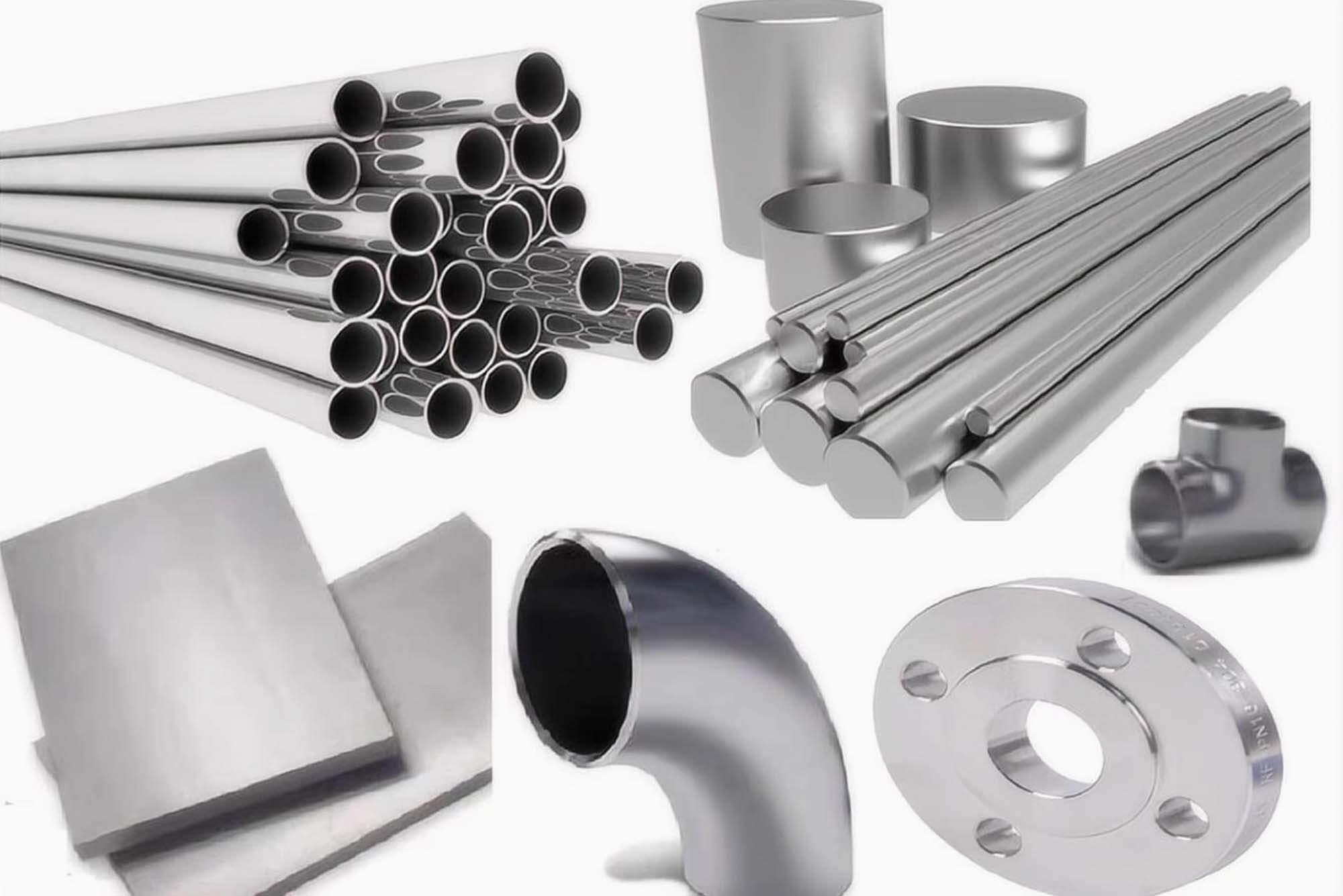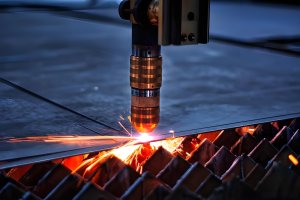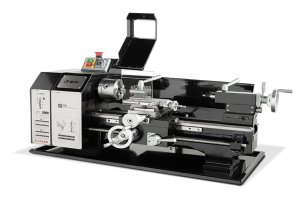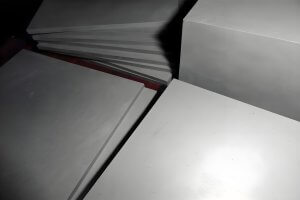When it comes to handling Inconel for custom parts through CNC machining, precision and expertise are non-negotiable. Inconel is one of the most challenging materials to machine, but also one of the most rewarding due to its unique properties. I’ve come across many cases where clients require high-performance parts made from Inconel for use in industries such as aerospace, petrochemicals, and energy production. This guide aims to cover everything you need to know about Inconel’s properties, the challenges it presents in CNC machining, and how to find the right supplier who can deliver custom parts with precision.
Unique Properties and Applications of Inconel
Inconel is a nickel-based superalloy known for its ability to withstand extreme temperatures, resist corrosion, and maintain its strength under severe conditions. This makes it highly sought after in industries where high-performance materials are required.
Key Properties of Inconel:
- Heat Resistance: Inconel can retain its strength and resist oxidation at temperatures exceeding 1000°C (1832°F), which makes it suitable for high-heat environments like gas turbines and jet engines.
- Corrosion Resistance: Inconel’s ability to resist corrosion in acidic and corrosive environments makes it ideal for chemical processing plants and marine applications.
- High Strength: Even at elevated temperatures, Inconel maintains excellent mechanical properties, allowing it to withstand immense pressure and stress.
Inconel Grades:
- Inconel 625: Known for its excellent corrosion and oxidation resistance, commonly used in marine, chemical, and aerospace industries.
- Inconel 718: Offers higher strength and fatigue resistance than 625, making it more suitable for aerospace components and turbine blades.
Applications of Inconel:
| Industry | Application | Inconel Grade |
|---|---|---|
| Aerospace | Turbine blades, exhaust systems, jet engines | 718 |
| Petrochemical | Reactor vessels, piping, valves | 625 |
| Marine | Seawater pumps, submarine components | 625 |
| Power Generation | Gas turbines, steam generators | 718 |
| Nuclear | Heat exchangers, reactor cores | 625/718 |
Inconel’s widespread use in these industries is a testament to its exceptional qualities. However, these same qualities also make CNC machining Inconel highly challenging.
Challenges and Solutions in CNC Machining for Inconel
From my experience, machining Inconel is not for the faint-hearted. Its high strength and low thermal conductivity lead to several challenges that must be managed carefully. Here’s a breakdown of the major challenges and solutions to overcome them.
2.1 Tool Wear
Due to Inconel’s hardness, traditional cutting tools wear down rapidly. The high temperatures generated during machining exacerbate this issue, reducing the lifespan of the tools and increasing costs.
Solution: The use of carbide or ceramic tools with special coatings (such as TiAlN or AlTiN) can greatly improve tool life. These tools are better suited to handle high heat and the abrasive nature of Inconel. In my experience, investing in high-quality tools pays off in the long run when working with Inconel.
2.2 Low Thermal Conductivity
Inconel has poor thermal conductivity, which means heat generated during cutting tends to stay concentrated at the cutting point, leading to rapid tool wear and potential damage to the material.
Solution: Using high-pressure coolant systems to manage heat is critical. I’ve found that using a directed stream of coolant not only helps control the temperature but also assists in chip removal, ensuring a smoother cutting process. Additionally, lowering the cutting speeds and feed rates reduces heat generation.
2.3 Work Hardening
Inconel is prone to work hardening, meaning it becomes harder in areas that have been machined, making subsequent cuts even more difficult.
Solution: Reducing the depth of cut and using sharp tools with the correct geometry helps minimize work hardening. Frequent tool changes are essential to maintaining a clean and efficient cut, as a dull tool will only increase the risk of work hardening.
2.4 CNC Machine Requirements
Machining Inconel demands rigid and high-power CNC machines. These machines need to maintain tight tolerances despite the stress that comes with cutting such a tough material.
Solution: Ensuring that the CNC machine is equipped with advanced controllers capable of adjusting cutting parameters in real-time is crucial for handling Inconel. In my experience, using multi-axis CNC machines like 5-axis mills not only improves precision but also reduces setup time for complex geometries.
Detailed Process for Custom Inconel Parts CNC Machining
One of the questions I often receive is how the process for machining custom Inconel parts works. The truth is, it follows a precise and methodical process that ensures accuracy and high performance.
Step-by-Step Process:
- Design Consultation: Clients typically start with a consultation phase where they present their design specifications and material requirements. This helps determine if Inconel is the right material for the application.
- Material Selection: Depending on the part’s intended use, the right grade of Inconel (e.g., 625, 718) is selected.
- Programming: CNC machines are programmed using CAD/CAM software that allows for precise control over tool paths, speeds, and feeds. For complex parts, I’ve found that advanced simulation software can prevent costly mistakes before machining even begins.
- Machining: The actual machining process can involve turning, milling, drilling, or grinding, depending on the complexity of the part. As mentioned, the process must be carefully managed to avoid tool wear and material distortion.
- Quality Control: After the machining phase, each part undergoes rigorous quality control measures. This includes coordinate measuring machines (CMMs) to check dimensional accuracy and surface finish analysis to ensure the part meets all specifications.
Typical Lead Times:
| Part Complexity | Lead Time | Quality Control Methods |
|---|---|---|
| Simple Parts | 2-3 weeks | Dimensional inspection, visual inspection |
| Complex Geometries | 4-6 weeks | CMM, surface roughness testing, stress testing |
Custom Inconel parts often take longer to produce due to the difficulty in machining, but by following a systematic approach, these lead times can be minimized while ensuring precision.
How to Select the Right CNC Supplier for Machining Inconel Parts
When dealing with Inconel, not all CNC suppliers are equipped to handle the complexity of this material. I’ve worked with a variety of suppliers, and here’s what I’ve learned about finding the right partner for the job.
Key Considerations:
- Experience with Inconel: Not every CNC supplier has the expertise required to work with Inconel. Look for suppliers with proven experience and a portfolio of Inconel parts they have successfully machined.
- Advanced Equipment: The supplier should have the latest CNC machines capable of handling Inconel’s high material hardness and low thermal conductivity. 5-axis CNC machines are often essential for producing complex Inconel parts.
- Tooling and Process Expertise: The right CNC supplier will have access to high-quality tools designed for Inconel, as well as a deep understanding of how to optimize the machining process. Ask about their tooling selection and how they manage issues like heat buildup and tool wear.
- Quality Control Capabilities: Ensure the supplier has rigorous quality control systems in place, including CMMs, surface finish analyzers, and the ability to perform non-destructive testing (NDT) if required for your parts.
Future Trends and Technological Innovations in Inconel Machining
The future of Inconel CNC machining lies in the integration of advanced technologies such as automation, artificial intelligence (AI), and machine learning. These innovations are transforming the way we machine tough materials like Inconel, making the process faster, more efficient, and more precise.
Key Trends:
- Automated Tool Changing: Automation allows CNC machines to change tools without human intervention, improving production times and reducing errors. For Inconel machining, this means tools can be changed out as soon as they show signs of wear, preventing potential damage to parts.
- AI and Machine Learning: AI can analyze real-time data from machining processes to predict tool wear and optimize cutting parameters. This leads to longer tool life and more efficient machining, particularly with challenging materials like Inconel.
- Advanced Coating Technologies: Research into nanocoatings for cutting tools is opening new doors for improving tool life and performance when machining Inconel. These coatings help reduce heat buildup and increase resistance to wear.
Conclusion
Custom CNC machining of Inconel requires a combination of advanced equipment, expertise, and a thorough understanding of the material’s unique properties. While the challenges are significant, the benefits of using Inconel in high-performance applications make the effort worthwhile. By partnering with the right CNC supplier and leveraging cutting-edge technology, you can ensure that your custom Inconel parts meet the highest standards of precision and durability.
FAQ
- Why is Inconel suitable for high-temperature and highly corrosive environments?
Inconel is a nickel-based alloy known for its outstanding heat resistance and corrosion resistance. It retains its strength at temperatures exceeding 1000°C (1832°F) and performs exceptionally well in acidic and corrosive environments, making it ideal for extreme industrial applications. - What are the differences between Inconel 625 and Inconel 718?
Inconel 625 is highly valued for its excellent corrosion and oxidation resistance, making it perfect for use in chemical, marine, and aerospace industries. Inconel 718, on the other hand, offers higher strength and fatigue resistance, which makes it more suitable for demanding aerospace components, including turbine blades and jet engines. - Why is Inconel more challenging to machine compared to other metals?
Inconel’s high strength and low thermal conductivity make it difficult to machine. These properties cause heat to build up at the cutting edge, leading to rapid tool wear. Additionally, Inconel’s work-hardening behavior makes each subsequent cut more difficult. - What types of tools are best suited for CNC machining Inconel?
High-performance tools like carbide or ceramic cutting tools with coatings such as TiAlN (titanium aluminum nitride) are ideal for machining Inconel. These tools provide the necessary heat resistance and durability required to handle Inconel’s demanding properties. - How can precision and surface quality be ensured when machining Inconel parts?
Precision is maintained by using sharp, high-quality tools, reducing cutting speeds, and frequently changing tools to avoid dull edges. Using high-pressure cooling systems and performing multiple light passes also help maintain surface quality and reduce thermal deformation. - Is machining Inconel more expensive than other metals? Why?
Yes, machining Inconel is generally more expensive due to its high hardness and difficulty to machine. Tool wear occurs more quickly, and machining often takes longer compared to materials like aluminum or stainless steel. This leads to higher costs in terms of time, tools, and resources. - What are the most common challenges when CNC machining Inconel?
The most common challenges include rapid tool wear, heat buildup at the cutting surface, and work hardening of the material. Each of these factors can reduce machining efficiency and increase costs if not carefully managed. - How long does it take to produce custom Inconel parts through CNC machining?
Lead times vary depending on the complexity of the part and the machining requirements. On average, simpler parts may take 2-3 weeks, while more complex parts with intricate geometries can take 4-6 weeks. - What kind of quality control measures are used to ensure the accuracy of Inconel parts?
Quality control typically includes using coordinate measuring machines (CMM) to verify dimensional accuracy, as well as performing surface roughness analysis. In some cases, non-destructive testing (NDT) is also used to ensure the part meets industry standards for strength and integrity. - Can Inconel parts be surface treated?
Yes, Inconel parts can undergo various surface treatments depending on their application. These treatments may include polishing, sandblasting, and coatings to enhance corrosion resistance or improve surface smoothness. - What industries typically use Inconel parts?
Inconel is widely used in industries such as aerospace, petrochemical, power generation, nuclear energy, and marine engineering. These industries demand materials that can withstand extreme temperatures, pressures, and corrosive environments. - How long do Inconel parts typically last in harsh environments?
Inconel parts are known for their durability and long lifespan in harsh environments. Due to their resistance to heat and corrosion, they often last significantly longer than parts made from other materials, making them ideal for long-term use in extreme conditions. - Can 5-axis CNC machining be used for Inconel parts?
Yes, 5-axis CNC machining is highly recommended for producing complex Inconel parts with intricate geometries. This technology allows for more precise and efficient machining by reducing the need for multiple setups and ensuring tighter tolerances. - How can CNC suppliers control the high costs associated with machining Inconel?
To control costs, CNC suppliers use optimized cutting parameters, high-performance tooling, and effective cooling systems. This reduces tool wear, minimizes downtime, and increases overall machining efficiency, helping to offset the higher material and tooling costs. - What environmental considerations should be taken into account when machining Inconel?
Inconel machining produces a significant amount of heat and chips, so proper cooling and filtration systems are necessary to manage waste. Most Inconel waste materials are recyclable, and responsible CNC shops implement environmentally friendly practices to reduce emissions and waste.
Other Articles You Might Enjoy
- Custom Precision CNC Machining Services for Bronze Parts
Introduction to CNC machining and Bronze Parts Manufacturing Custom precision Computer Numerical Control (CNC) machining is a unique technology that employs computerized controls and machine tools to eradicate layers of…
- 3 Axis Vs 5 Axis CNC Machining: Custom Precision Parts Cost
In modern custom CNC machining services, the need for high precision customized machining parts is rising. No doubt, COVID-19 has also put an impact on the cost of parts ranging from…
- Nylon CNC Machining Service for Custom Parts
Nylon is an engineering plastic known for its high strength, wear resistance, and chemical inertness. It possesses excellent mechanical properties and durability, making it widely used in various fields including…
- Requirements for CNC Machining Parts
Preparation Work Complete the necessary preparation before machining, including process analysis, process route design, tool and fixture selection, and program compilation. online cnc machining service Operating Steps and Contents Start…
- Elevating Precision Standards through Chamfer in CNC Machining
1. Introduction: The Pursuit of Unparalleled Precision In the realm of CNC machining, precision is paramount. This section introduces the article by exploring the significance of precision in manufacturing and…
- CNC Machining Aluminum vs. Brass: A Detailed Comparison for Precision Parts Manufacturing
Introduction to CNC Machining and Material Choices CNC (Computer Numerical Control) machining is a critical process in precision parts manufacturing. Its importance lies in its ability to create intricate and…






